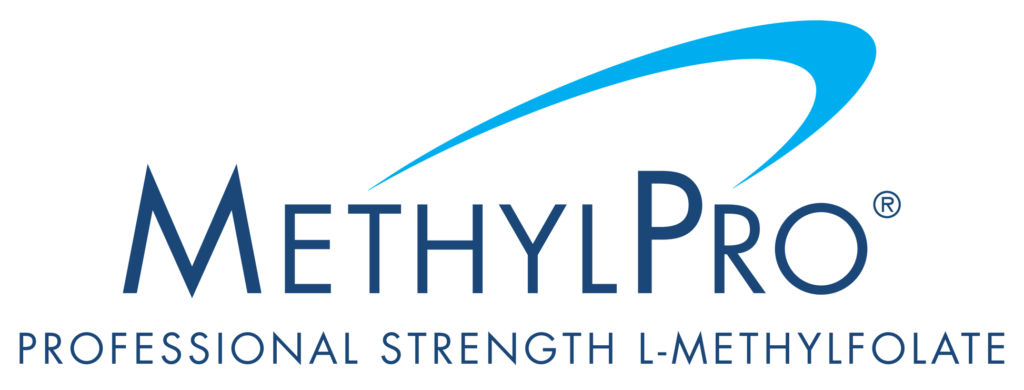Why L-Methylfolate is Superior to Folic Acid for Expectant Mothers
Folate, a B-vitamin, is one of the most crucial nutrients for a healthy pregnancy. Folate during pregnancy supports fetal development, maternal health, and supports normal development of the neural tube [1].
However, not all forms of folate are created equal. Expectant mothers have often been advised to take folic acid, the synthetic form of folate. But recent research suggests that L-methylfolate, the active form of folate, may be a superior option for many women [2].
In this article, we’ll explore the multiple roles folate plays during pregnancy and why L-methylfolate should be considered over folic acid, regardless of your genetics.
Why Folate is Critical During Pregnancy
Folate is essential for several key biological processes during pregnancy. These processes can significantly impact both the mother and the developing baby.
1. Supports Neural Tube Development
One of the most well-known roles of folate is its involvement in the formation of the baby’s neural tube. The neural tube develops into the brain and spinal cord in the first 12-14 weeks of pregnancy [1]. Because much of this development happens before many women can confirm they are pregnant, adequate folate levels before becoming pregnant are just as important as folate levels during the early stages of pregnancy [1]. This is why folate supplementation is recommended before and during early pregnancy.
2. Promotes Healthy Cell Growth and Division
Folate is critical for DNA synthesis, which is necessary for cell growth and division [3]. While it is fairly obvious that normal cell growth is necessary for a healthy baby, the baby is not the only person growing rapidly during pregnancy.
A mother’s body undergoes rapid cell growth too. This includes development of the placenta and umbilical cord, amniotic sac and fluid, new blood vessels, increased blood volume, reinforcement of the uterine wall, and more [4]. Folate supports the growth of these new cells and their functions. It helps to optimize and maintain the mother’s tissues and organs for the best outcomes during pregnancy.
3. Supports Healthy Methylation
Active L-methylfolate supports healthy methylation for cardiovascular, cognitive and bone health, in both mother and baby. In addition, folate plays a role in the normal metabolism of homocysteine via methylation.
Why L-Methylfolate is Superior to Folic Acid
For years, folic acid has been the standard recommendation for pregnant women. However, growing evidence shows that L-methylfolate, the bioactive form of folate, may be a better option, particularly for women who have difficulty converting folic acid into its usable form [2].
1. Folate Metabolism and MTHFR Gene Variants
To be used by the body, folic acid must go through several metabolic steps, eventually converting to L-methylfolate, the form of folate the body can use. However, more than half of the global population carry a genetic variant in the MTHFR gene, which impairs their ability to convert folic acid into L-methylfolate efficiently [7,8]. Women with this genetic variation may not get enough active folate from folic acid supplements, leaving them and their babies at risk of functional folate insufficiency.
L-methylfolate bypasses the need for this conversion process. As the active form of folate, it is immediately available for the body to use, making it a more reliable option for supporting pregnancy, particularly for women with the MTHFR variant [8,2].
2. Better Absorption and Bioavailability
Studies show that L-methylfolate has better bioavailability versus to folic acid, meaning it is easier to absorb and utilize in the body [8]. During pregnancy, nutrient demands are higher and due to a changing microbiome, absorption can become less efficient [9]. L-methylfolate ensures that expectant mothers get the optimal amount of folate to support both their health and their baby’s development.
3. Reduced Risk of Unmetabolized Folic Acid
When folic acid isn’t fully converted into active folate, it can build up in the bloodstream as unmetabolized folic acid (UMFA) [10,11]. Research is still ascertaining what, if any, health effects this compound may have in the body [10,11]. Because L-methylfolate doesn’t require conversion, there is no risk of UMFA buildup [11].
Final Thoughts
Given the crucial roles folate plays during pregnancy and the widespread presence of the MTHFR gene variant, it’s clear that L-methylfolate offers significant advantages over folic acid. Its superior bioavailability and ability to bypass genetic limitations make it a smart choice for folate supplementation.
At MethylPro®, we understand the importance of high-quality supplementation from the time you are considering pregnancy until your healthy baby arrives. Unlike folic acid, our L-methylfolate is bioavailable and ready for your body to use, ensuring you get the full benefits of this vital nutrient throughout your pregnancy.
Please, especially during a vulnerable time like pregnancy, talk to your doctor about any new supplement and let them guide you to a dosage that makes sense for your unique needs.
References
- https://www.sciencedirect.com/science/article/abs/pii/S1701216320309014
- https://www.scirp.org/journal/paperinformation?paperid=111697
- https://www.sciencedirect.com/science/article/pii/S2475299122120792
- https://www.ncbi.nlm.nih.gov/books/NBK559304/
- https://onlinelibrary.wiley.com/doi/full/10.1155/2021/6652231
- https://pmc.ncbi.nlm.nih.gov/articles/PMC10034471/
- https://www.mdpi.com/2218-273X/12/8/1086
- https://www.mdpi.com/2077-0383/9/9/2836
- https://www.nature.com/articles/s41575-022-00714-7
- https://www.sciencedirect.com/science/article/pii/S0002916522009091
- https://www.frontiersin.org/journals/immunology/articles/10.3389/fimmu.2022.946713/full

